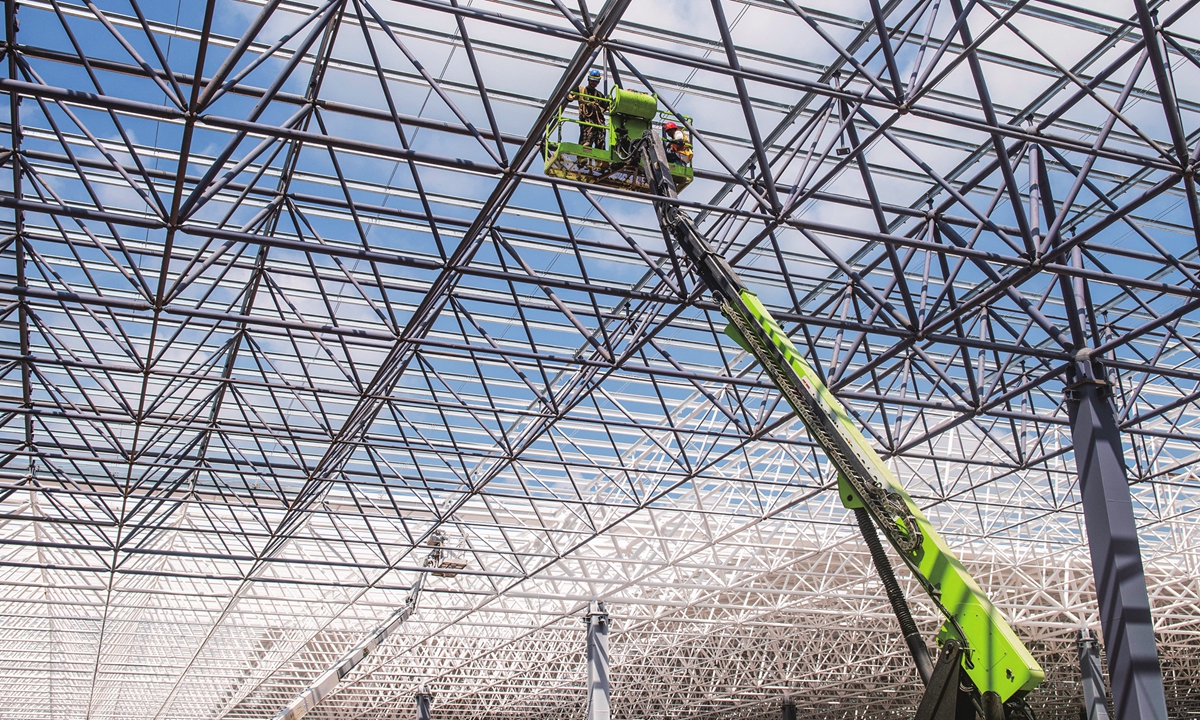China’s top economic planner said on Monday in a notice that it will further build up mechanisms and improve policies to spur the development of private investment, the latest effort to boost the nation’s economic growth, which has steadily made headway along the recovery track.
With the Chinese authority steering a clear direction for private investment coupled with detailed measures, it is expected that the confidence and enthusiasm of private investors will be shored up, enhancing the internal momentum of the world’s second-largest economy, experts told the Global Times.
The National Development and Reform Commission (NDRC) said in the notice that it will strive to keep the proportion of nationwide private investment in fixed assets at a reasonable level.
Provincial development and reform commissions should clarify the proportion of private investment in their regions and the focus on objectives, including the growth rate of infrastructure investment from private capital.
They should formulate specific measures, consolidate the responsibilities of all parties, and promote the implementation of those tasks, according to the WeChat account of the NDRC.
This move aims to drive improvement in the private investment environment, enhance the investment willingness of private enterprises, and boost their vitality.
Private investment has faced mounting pressure this year with such prominent problems looming as investors’ lack of confidence and clear recognition of investment directions, unreasonable thresholds restricting the participation of private capital, and difficulties in their financing, Han Zhifeng, a deputy head of the Department of Fixed-Asset Investment at the NDRC, told a press conference on Monday.
Nonetheless, there were some highlights in the first half, with private investment excluding real estate up 9.4 percent year-on-year, 5.6 percentage points higher than the overall growth rate of fixed-asset investment, official data showed.
Private capital has seen growing vitality in manufacturing in such areas as clean energy and new-energy vehicles. Private investment in manufacturing increased 8.4 percent in the first half, 2.4 percentage points higher than overall investment in the industry.
“We’ll make a project list to attract private investment in a comprehensive way and enhance the strength of project promotion… We’ll enhance support for private firms’ access to financing and build up a channel for them to reflect and solve problems,” Luo Guosan, head of the Department of Fixed Asset Investment at the NDRC, said during the press conference.
It will be a real effort to implement the pledge of treating state-owned firms and private ones equally in terms of institutions and the law, Luo said.
On July 7, the NDRC established a pilot investment and lending cooperation mechanism with seven banks to facilitate private investment.
Private capital is also being encouraged to participate in major projects including transportation, water conservancy, clean energy, new infrastructure, advanced manufacturing, modern facility agriculture and other fields, according to the NDRC notice.
Private investment projects are encouraged to issue infrastructure real estate investment trusts (REITs) in a bid to expand investment and financing channels.
In recent years, private firms have shown more enthusiasm for issuing infrastructure REITs, which can revitalize existing assets as they effectively bridge the real economy and the capital market.
“But overall, the number of such REITs issued by private firms is still relatively small, and the types of assets are still few,” Han noted.
China currently allows REIT listings of infrastructure projects such as highways, industrial parks, sewage treatment, storage and logistics, clean energy and affordable rental housing.
“Detailed measures in the notice are the concrete implementation of the guideline issued last week,” Pan Helin, a research fellow with the International Business School, Zhejiang University, told the Global Times on Monday.
Spurring the development of the private sector is not “lip service” despite the hype by some Western media outlets. On the contrary, China is following through on its pledges and those measures are expected to trickle down, forging a favorable environment for the development of the private economy, according to Pan.
“The resolution proposed in the notice to solve difficulties facing private firms is pragmatic,” Wang Qing, chief macroeconomic analyst at Golden Credit Rating International, told the Global Times.
On July 19, China issued a 31-point guideline to boost the growth of the private economy, promising that it will ensure that enterprises with different ownership structures to operate in an arena of fair competition and be protected equally by the law.
The guideline, which is intended to improve the business environment, enhance policy support and strengthen the legal guarantee for the development of the private economy, followed recent meetings held by the Chinese leadership and multiple government departments including the NDRC, with the participation of private company representatives to discuss and learn about their business situations and operating difficulties.













